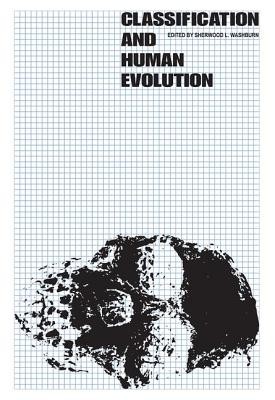
- Išsiųsime per 10–14 d.d.
- Leidėjas: Routledge
- ISBN-10: 0202309355
- ISBN-13: 9780202309354
- Formatas: 18 x 25.5 x 2.6 cm, minkšti viršeliai
- Kalba: Anglų
- Extra -15 % nuolaida šiai knygai su kodu: ENG15
Classification and Human Evolution (el. knyga) (skaityta knyga) | knygos.lt
Atsiliepimai
Aprašymas
The names given to the variety of man-like fossils known to scientists should reflect no more than scientific views of the nature of human evolution. However, often in the past these names have also reflected confusion regarding the basic principles of scientific nomenclature; and the matter has been further complicated by the many new finds of recent decades. It is the unique purpose of this book to clarify the present state of knowledge regarding the main lines of human evolution by expressing what is known (and what is surmised) about them in appropriate taxonomic language.
The papers in this volume were prepared by the world's leading authorities on the subject, and were revised in the light of discussions at a remarkable conference held in Austria in 1962 under the auspices of the Wenner-Gren Foundation. The authors review first the meaning of taxonomic statements as such, and then consider the substance of our present knowledge regarding the number and characteristics of species among living and extinct primates, including man and his ancestors. They also examine the relationship of behavior changes and selection pressures in evolutionary sequences.
Ample illustrations, bibliographies and an index enhance the permanent reference value of the book, which will undoubtedly prove to be among the fundamental paleoanthropological works of our time.
EXTRA 15 % nuolaida su kodu: ENG15
Akcija baigiasi už 09:32:00
Nuolaidos kodas galioja perkant nuo 10 €. Nuolaidos nesumuojamos.

- Leidėjas: Routledge
- ISBN-10: 0202309355
- ISBN-13: 9780202309354
- Formatas: 18 x 25.5 x 2.6 cm, minkšti viršeliai
- Kalba: Anglų Anglų
The names given to the variety of man-like fossils known to scientists should reflect no more than scientific views of the nature of human evolution. However, often in the past these names have also reflected confusion regarding the basic principles of scientific nomenclature; and the matter has been further complicated by the many new finds of recent decades. It is the unique purpose of this book to clarify the present state of knowledge regarding the main lines of human evolution by expressing what is known (and what is surmised) about them in appropriate taxonomic language.
The papers in this volume were prepared by the world's leading authorities on the subject, and were revised in the light of discussions at a remarkable conference held in Austria in 1962 under the auspices of the Wenner-Gren Foundation. The authors review first the meaning of taxonomic statements as such, and then consider the substance of our present knowledge regarding the number and characteristics of species among living and extinct primates, including man and his ancestors. They also examine the relationship of behavior changes and selection pressures in evolutionary sequences.
Ample illustrations, bibliographies and an index enhance the permanent reference value of the book, which will undoubtedly prove to be among the fundamental paleoanthropological works of our time.



Atsiliepimai